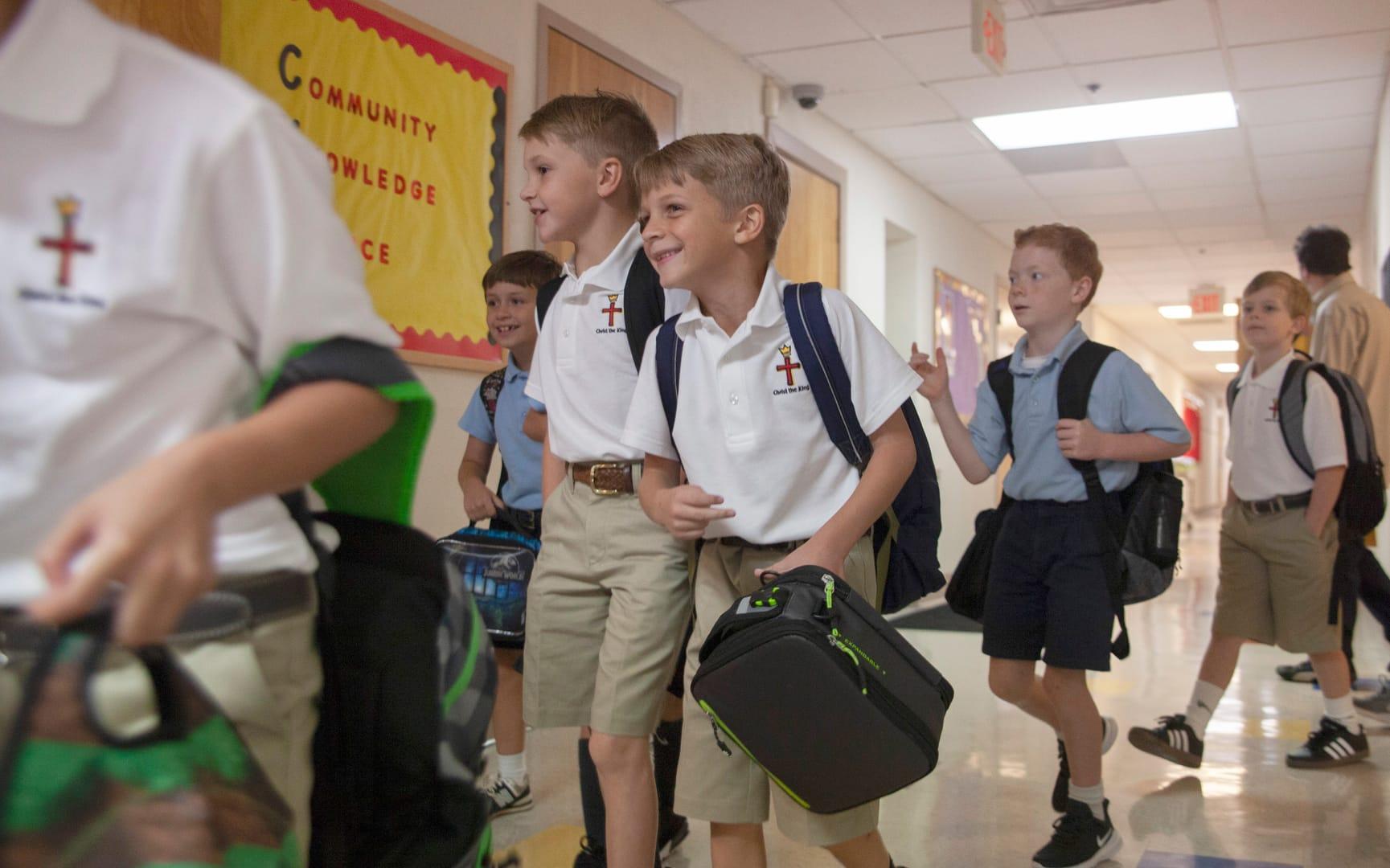NEW YORK – A Catholic education organization has launched a national teacher credential program that gives Catholic educators formation specific to the vocation, and also a potential alternative to a state teacher license.
The Catholic Educator Formation and Credential program was created by the Institute for Catholic Liberal Education (ICLE). Elisabeth Sullivan, the organization’s executive director, told Crux that the initiative is, in part, a response to the secular philosophy of the often-required state teacher licenses that don’t always align with the approach and values of Catholic education.
Sullivan said the problem with modern secular teaching training is that it’s based on a pragmatic philosophy of education that “undermines the wonder and mystery at the heart of faith,” whereas the Catholic education model focuses on liberal arts.
“There’s nothing in pragmatic education that understands the mysteries at the heart of the faith or the need to recover wonder in the classroom and show the integration of knowledge, and how faith and reason don’t conflict,” Sullivan explained. “We think that those men and women who are called to a vocation in Catholic education deserve formation that is based in the beauty and the depths of the Catholic intellectual tradition.”
This first iteration of the national credential program will begin Aug. 1, and include 40 K-8 Catholic educators from around the country. It’s an 18-month long hybrid program featuring five courses on content and pedagogy rooted in Catholic philosophy.
Aug. 1-5, the educators and staff from ICLE will come together at Aquinas College in Nashville, Tennessee, for a “bootcamp.” They’ll come together again for five days in January and June 2023 for a total of 15 days together in person, all with a goal of “catching the spark and growing together in the art of teaching in the light of Christ.” In between the in-person sessions, there will be two or three online gatherings a month.
Mary Pat Donoghue, the executive director of the Secretariat of Catholic Education for the United States Conference of Catholic Bishops, told Crux that the program is an answer to an expressed need from Catholic bishops, superintendents, and principals: finding well-formed Catholics to fill leadership positions in Catholic education.
Donoghue noted that Catholic schools often require state certification to have a measurable way of ensuring quality, even though those certifications sometimes contain elements that “contradict or undermine the faith.”
“This program will assist bishops in [ensuring quality], but in a way that’s fully consistent with the church,” Donoghue said.
At the moment, there are 10 dioceses that will recognize the program as an alternative teacher license, and therefore no longer require state teacher licenses, Sullivan said. Although, she cautioned that the goal of the program isn’t for dioceses to reject state teacher licenses, and she “wouldn’t want them to.”
“I see it as an alternative, but let’s not forget that there’s plenty of great people out there that hold state teacher licenses and we wouldn’t want to exclude them,” Sullivan said, noting that many of the program applicants have state teacher licenses and want to use the program to go “deeper” into their vocation from the Catholic perspective.
The ICLE launched a pilot of the program last year with 28 educators from Archdiocese of Denver Catholic schools. Abriana Chilelli, associate superintendent of academic renewal for the archdiocese’s schools, told Crux that the model fits the efforts of the archdiocese to “call all our schools back to be who they are” as Catholic institutions.
As a result of the program, Chilelli said, the 28 educators that participated have integrated their content, particularly with history, literature and theology, as well as worked on the imagination and memories of the students.
“It has really accomplished that aim that we set out,” Chilelli said. “They really get a good grounding in the intellectual tradition of the church, but then, especially important for us was the aim of helping our teachers know how to lead children in the classroom in a way that really honors the student’s anthropology and leads the student to truth.”
Denver is one of the 10 dioceses that accepts the ICLE program as a form of teacher certification. Chilelli said when the first 28 teachers finish the 18-month program, another 30 teachers are already lined up to begin it in August.
Denver’s program works differently than the national program, in that ICLE goes out to the archdiocese. Sullivan said next year that model will expand to other dioceses with at least 30 teachers who want to participate in the program.
Meanwhile, next year the ICLE national teacher credential program will expand to high school teachers and continue to grow in numbers as well.
“We want to reach as many people as we can,” Sullivan said. “We want to have so many people trained around the country that they are spreading this to all kinds of Catholic educators.”
Follow John Lavenburg on Twitter: @johnlavenburg













